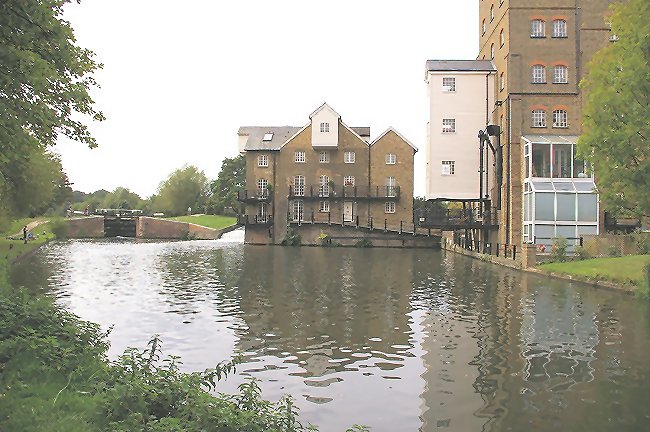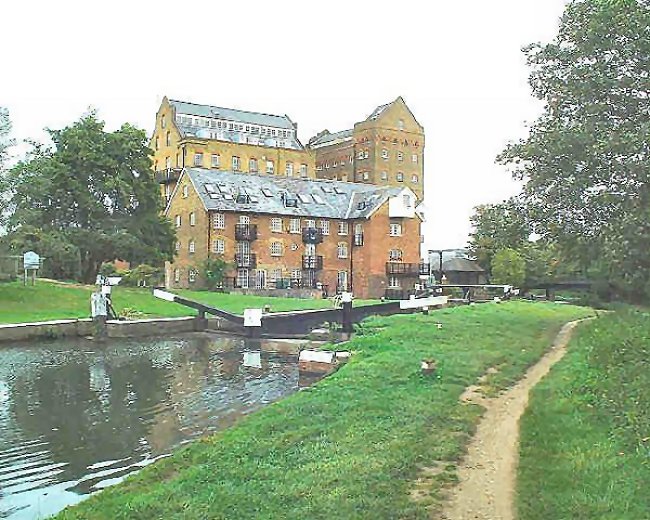Part 1 | Part
2 | Part 3 (this page)

The overflow from the mill pond flows into
the River Wey Navigation adjacent to Coxes Lock. 26th September 2009.

To the left is Coxes Lock, with the mill
pond overflow between it and the building in the centre. To the right is
the wharf where barges were loaded with flour to be taken along the
canal, the River Wey and the River Thames to Tilbury..

A South West Trains service from Weybridge to London Waterloo via
Staines crosses the canal. The photograph was taken from Coxes Lock.
10th October 2007.
| |
|
|
| |
By the 1830s Coxes
Mill had become a corn mill and a silk mill, though the silk mill
was soon abandoned. Corn milling continued until 1982 (or
1983 according to some sources), with
canal transport being used regularly until 1969, and then again near
the end.
|
|
| |
|
|

The Coxes Mill site is defined on three
sides by the mill pond, the canal and the railway.
In this 2007 view the railway
between Virginia Water and Weybridge crosses the canal.

The view of the mill facing west from the
canal. 5th July 2010.

The south face of Coxes Mill. At this time
work was being carried out on the right-hand building. 18th November
2008.

The south face of Coxes Mill. 26th September
2009.

Scene showing the canal lock, the mill
building and a canal maintenance barge. Photograph taken from beneath the railway bridge in 2007. Grain
arrived here from Tilbury until 1969. Traffic resumed in 1981 for a
short while.

Scene along the River Wey Navigation
beyond the railway bridge in 2007.
| |
|
|
| |
Towards the end of
the building's use as a mill it became part of a group called
Allied Mills. This was formed of 23 mills operating in various
parts of the country.
|
|
| |
|
|

A view of the lock on the River Wey
Navigation and the sluice from the mill pond.
The former Coxes Flour Mill is now a desirable residence. Photo
2007.

The Coxes Flour Mill complex, seen from
the canal towpath in 2007.
Part 1 | Part
2 | Part 3 (this page)
|












